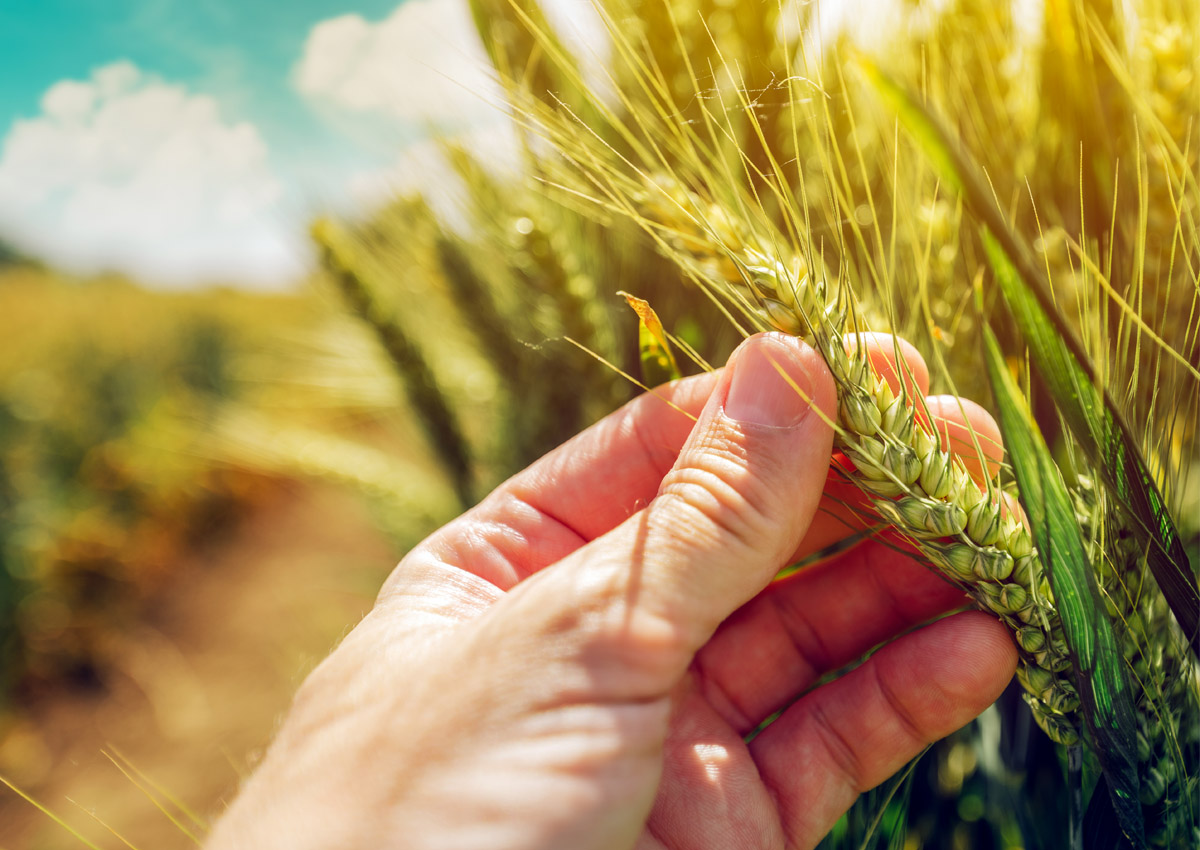
Massive-scale Genomic Study of Almost 80,000 Accessions Reveals Wheat Diversity
September 16, 2020| |
Researchers have genetically characterized 79,191 samples of wheat from the germplasm banks of the International Maize and Wheat Improvement Center (CIMMYT) and the International Center for Agricultural Research in the Dry Areas (ICARDA). They are part of the Seeds of Discovery (SeeD) initiative, which aims to facilitate the effective use of genetic diversity of maize and wheat. The study is a massive-scale genotyping and diversity analysis of the two types of wheat grown globally — bread and pasta wheat — and of 27 known wild species.
The results show distinct biological groupings within bread wheat and suggest that a large proportion of the genetic diversity present in landraces has not been used to develop new high-yielding, resilient, and nutritious varieties. The study also found that the genetic diversity of pasta wheat is better represented in the modern varieties, with the exception of a subgroup of samples from Ethiopia.
The researchers mapped the genomic data from the genotyping of wheat samples to identify the physical and genetic positions of molecular markers associated with characteristics that are present in both types of wheat and in the crop's wild relatives. They found that, on average, 72% of the markers obtained are uniquely placed on three molecular reference maps, and around half of these are in interesting regions with genes that control specific characteristics of value to breeders, farmers, and consumers, such as heat and drought tolerance, yield potential, and protein content.
The data, analysis, and visualization tools of the study are freely available here. For more details, read the CIMMYT press release.
| |
You might also like:
- Rain-resistant Wheat Developed Using Genome Editing
- Scientists Decode the Genetic Basis of Floret Fertility in Wheat
- Study Shows Drought Tolerant HB4 Wheat Compositionally Equivalent to Non-GM Wheat
Biotech Updates is a weekly newsletter of ISAAA, a not-for-profit organization. It is distributed for free to over 22,000 subscribers worldwide to inform them about the key developments in biosciences, especially in biotechnology. Your support will help us in our mission to feed the world with knowledge. You can help by donating as little as $10.
-
See more articles:
-
News from Around the World
- ANU Book Presents Stories of Communicating Science in 39 Countries
- FAO Reports Lack of Progress in Achieving SDG
- Research Reveals New Insights to Advance Cassava Breeding
- Massive-scale Genomic Study of Almost 80,000 Accessions Reveals Wheat Diversity
- Gene Editing Produces Livestock ‘Surrogate Sires' Successfully Made Fertile
- PH Government Grants GM Corn Seeds, Farm Inputs to Farmers Association's Model Farm
- Research Team Lays Foundation for Crops with Resistance to Combined Climatic Stresses
-
Research Highlights
- cry1Ab Transgene Segregation Patterns of GM Maize Documented
-
Plant
- Research Pinpoints GDSL Esterase/Lipase Protein Vital for Anther and Pollen Development
- CRISPR-Cas9 Elucidates Seed Shattering Reduction during Rice Domestication
-
Health
- Study Finds COVID-19 Virus Remains in Stool Samples
- Researchers Discover SARS-CoV-2 Uses Heparan Sulfate to Get Inside Cells
-
Read the latest: - Biotech Updates (February 18, 2026)
- Gene Editing Supplement (January 28, 2026)
- Gene Drive Supplement (February 22, 2023)
-
Subscribe to BU: - Share
- Tweet

